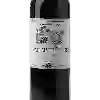
Winery Santini CollectiveVin Noè Face to Face Viognier
This wine generally goes well with pork, poultry or game (deer, venison).
The Vin Noè Face to Face Viognier of the Winery Santini Collective is in the top 10 of wines of Beaujolais.
Food and wine pairings with Vin Noè Face to Face Viognier
Pairings that work perfectly with Vin Noè Face to Face Viognier
Original food and wine pairings with Vin Noè Face to Face Viognier
The Vin Noè Face to Face Viognier of Winery Santini Collective matches generally quite well with dishes of pork, game (deer, venison) or shellfish such as recipes of cabbage casserole, rabbit italian style or mie goreng.
Details and technical informations about Winery Santini Collective's Vin Noè Face to Face Viognier.
Discover the grape variety: Viognier
White Viognier is a grape variety that originated in France (Rhone Valley). It produces a variety of grape specially used for wine making. It is rare to find this grape to eat on our tables. This variety of grape is characterized by small bunches, and grapes of small size. White Viognier can be found in many vineyards: South West, Languedoc & Roussillon, Cognac, Bordeaux, Rhone Valley, Burgundy, Jura, Champagne, Savoie & Bugey, Provence & Corsica, Loire Valley, Beaujolais.
Informations about the Winery Santini Collective
The Winery Santini Collective is one of of the world's greatest estates. It offers 9 wines for sale in the of Beaujolais to come and discover on site or to buy online.
The wine region of Beaujolais
Beaujolais is an important wine region in eastern France, famous for its vibrant, Fruity red wines made from Gamay. It is located immediately South of Burgundy, of which it is sometimes considered a Part, although it is in the administrative region of Rhône. The extensive plantings of Gamay in this region make Beaujolais one of the few regions in the world that is so concentrated on a single Grape variety. Pinot Noir is used in small quantities in red and rosé wines, but in the name of regional identity, it is being phased out and will only be allowed until the 2015 harvest.
The word of the wine: Malic (acid)
An acid that occurs naturally in many wines and is transformed into lactic acid during malolactic fermentation.














